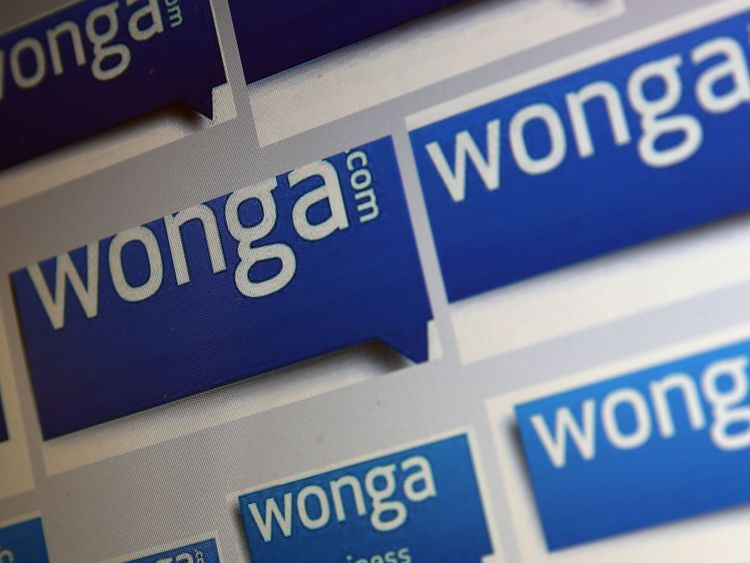Wonga, one of Britain’s largest short-term money-lenders, has been saved from going bust by an emergency £10m cash injection from a consortium of high-profile technology investors.
Sky News can exclusively reveal that Wonga, which was among the pioneers of the UK’s online payday lending sector, has been rescued in the last few weeks after its chief executive warned shareholders that it was in danger of becoming insolvent.
The fundraising is understood to have taken place at a valuation of just $30m (£23m) prior to the injection of the new money – a stunning decline for a financial technology group which once had ambitions of a New York listing that could have valued it at well over $1bn (£769m).
Sources close to Wonga said the £10m had now been received from prominent venture capital funds such as Accel Partners and Balderton Capital, both of which are long-standing investors in the business, removing the immediate threat to its future.
Sky News has been told that Tara Kneafsey, the lender’s chief executive, informed fellow directors two months ago that an increase in the volume of complaints about loans made before new rules were introduced in 2014 had triggered a big rise in compensation payouts.
A source close to one of Wonga’s institutional shareholders said that Ms Kneafsey had warned in late May that the company risked becoming insolvent without a capital injection.
Wonga’s cashflow is understood to have become so tight that its board is now evaluating the sale of some of its assets, as well as raising more debt.
Ms Kneafsey is also said to have highlighted a pending decision by the Financial Ombudsman about the time limit for legacy complaints about irresponsible lending as another headache for Wonga.
The new capital injection is said to have been made more complicated by the requirement for Wonga’s UK arm to provide cash to its parent company in June.
Directors of the British division could have risked breaching their legal duties if they had sanctioned the transfer of funds to an insolvent company.
Wonga, which employs about 500 people, has been loss-making for the last few years after encountering a string of regulatory hurdles such as the City watchdog’s cap on the cost of short-term loans.
The company, which lost about £65m in 2016, had been targeting a return to profitability last year, although it is unclear whether that objective was met, with its 2017 results not expected to be published for several weeks.
In a statement issued to Sky News this weekend, a Wonga Group spokesman said: “Wonga continues to make progress against the transformation plan set out for the business.
“In recent months, however, the short-term credit industry has seen a marked increase in claims related to legacy loans, driven principally by claims management company activity.
“In line with this changing market environment, Wonga has seen a significant increase in claims related to loans taken out before the current management team joined the business in 2014.
“As a result, the team has raised £10m of new capital from existing shareholders, who remain fully supportive of management’s plans for the business.”
Wonga, which raised its profile by sponsoring Newcastle United, continues to trade in countries including Poland, South Africa and Spain.
Its board, led by chairman Andy Haste, a former boss of RSA Insurance, has previously expressed confidence that it can re-establish itself as a sustainable business in the UK.
A flexible loan product has been launched with some success as the company seeks to diversify away from the short-term lending activity that sparked political and public controversy.
The entire payday lending sector has been hit by the Financial Conduct Authority’s price cap, with dozens of providers going bust since its introduction in 2014.
In 2015, Wonga was ordered by the City watchdog to pay more than £2.5m in compensation to 45,000 customers who were sent letters purporting to be from law firms but which in fact did not exist.
From – SkyNews


